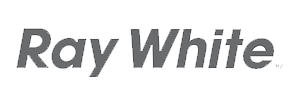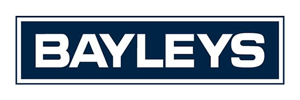 Large, ‘prize’ properties while desirable and attractive, can take longer to rent than small properties; the inner city suburbs will always be in high demand; apartments in good order will probably be less expensive to run than a house, though a house may appreciate more over time. So what characterises a good rental property investment?
Large, ‘prize’ properties while desirable and attractive, can take longer to rent than small properties; the inner city suburbs will always be in high demand; apartments in good order will probably be less expensive to run than a house, though a house may appreciate more over time. So what characterises a good rental property investment?
Let’s look at a tried and true way to measure returns and what investors should be looking for when purchasing and investing in rental property. Total investment returns in real estate are really comprised of two pieces: operating positive cash flows (rental yield) and long-term appreciation (capital gain).
Capital gain, rental yield, and property investment
It’s important to understand the differences between capital gains and rental yield before you can really dive into which investment path is right for you.
- Capital gains: Long-term appreciation
Over time, a property value tends to rise over time (but not always). It’s a long term play where a substantial profit—the capital gain—can be made when you decide to sell. Furthermore, there is an opportunity to use any equity these properties gain over time to purchase additional investments.
- Rental yield: Cash flow
Conversely, rental yield is simply the income generated from tenants in your investment properties paying a rental fee. Net income is the total amount of money you receive per month after you factor in related costs such as your maintenance expenses, mortgage payment, and vacant periods.
A high demand rental property is all about positive cash flow
In today’s world, even though it probably will come, long term appreciation is never a given. Markets can be volatile. This really leaves positive operating cash flows as the primary source of investment return. With that in mind here are a few practical tips to keep in mind when you’re getting your rental investments set up:
- Don’t think short-term: While rentals can show you shorter-term cash flow more quickly than other properties, try not to be shortsighted on your returns. Longer-term ownership of high demand rental properties will provide a much more consistent positive cash flow than a short-term flip.
- Use your rental property as a personal home first: Many younger investors opt to first live in their properties before renting them to tenants. You’ll enjoy better financing options with a smaller required deposit when you first start as an occupant. Additionally, this will give you the time to learn and understand your property to make maintenance or other issues much easier for you to resolve down the road. Doing this ensures you will only buy properties in areas where you’re willing to live, and that’s very important to do as a real estate investor.
- Don’t be allured by 'prize' properties: Prize properties may have unbelievable curb appeal to eager investors. However, they’re often considerably pricier, they will not attract as many tenants, and they frequently end up creating a negative cash flow in the long run.
- Avoid 'fix-me-up' investments: The appeal cheaper ‘fix-me-up’ investment properties often leads younger investors into the trap of a cash pit. Fixer-uppers are money pits and rarely sell at a large enough discount to compensate for all the work needed. Buying properties that are as close to rental ready as possible is smarter and less riskier option. A great move, if possible, is to buy a property with a good tenant already renting the property.
- Think twice about holiday rentals: Holiday rentals can sometimes be charged up to 45% for cleaning, booking fees, pool maintenance and insurance. Before considering buying a property at your favourite holiday spot, investors should investigate visit statistics, occupancy rates and rental returns.
As always, a sound and well-researched strategy can bring a wide range of benefits to smart investors. However, the success of a rental property investment also depends on your ability to manage it well. Our guide on property management essentials can help you along your investment journey.










